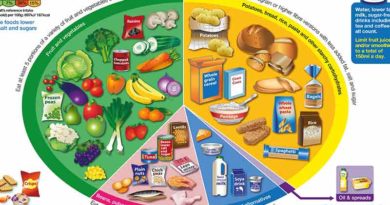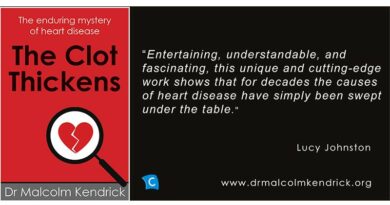The diet heart hypothesis & plant sterols
The first paper published from my PhD was an examination of the relevant randomised controlled trials (RCTs) available at the time dietary fat guidelines were introduced – 1977 in the US and 1983 in the UK (Ref 1). It used the relatively modern technique of meta-analysis to pool together the trials to see what conclusion could be reached by looking at all the RCTs together.
There were three major findings:
1) There was no RCT evidence to support the introduction of dietary fat guidelines.
There were five RCTs available at the time of issuing dietary guidelines in the US and six by the time the UK committee was deliberating. All-cause mortality was identical at 30% in the intervention and control groups. There was no statistically significant difference in deaths from Coronary Heart Disease (CHD).
Individually no study called for change. Indeed two of the studies cautioned about the possible harm of their (vegetable oil) interventions (Ref 2 & 3).
2) Reductions in cholesterol did not result in a reduction in deaths.
Cholesterol levels fell in both the intervention groups and the control groups in all six RCTs. The falls in cholesterol were much higher in the intervention groups than in the control groups. The differences were statistically significant. However, there was no difference in deaths – from all-causes or from CHD. This paper showed that a reduction in cholesterol did not result in a reduction in deaths. This paper thus undermined the alleged role of cholesterol as an intermediary to the development of CHD and it contravened the theory that reducing dietary fat will reduce the risk of CHD. It struck a major blow to the cholesterol diet heart hypothesis.
3) Results would not have been applicable to the whole population anyway.
Even if the evidence from RCTs had been compelling, the 6 RCTs included 2,467 mostly sick men and no women. Five of the studies involved men who had already had a heart attack; one study included both men who had had a heart attack and men who hadn’t. No women had been studied. No study of entirely healthy men had been conducted. Any findings could never have been applicable to the entire US and UK populations.
Why did cholesterol fall?
The rest of this article is available to site subscribers, who get access to all articles plus a weekly newsletter.
To continue reading, please login below or sign up for a subscription. Thank you.




